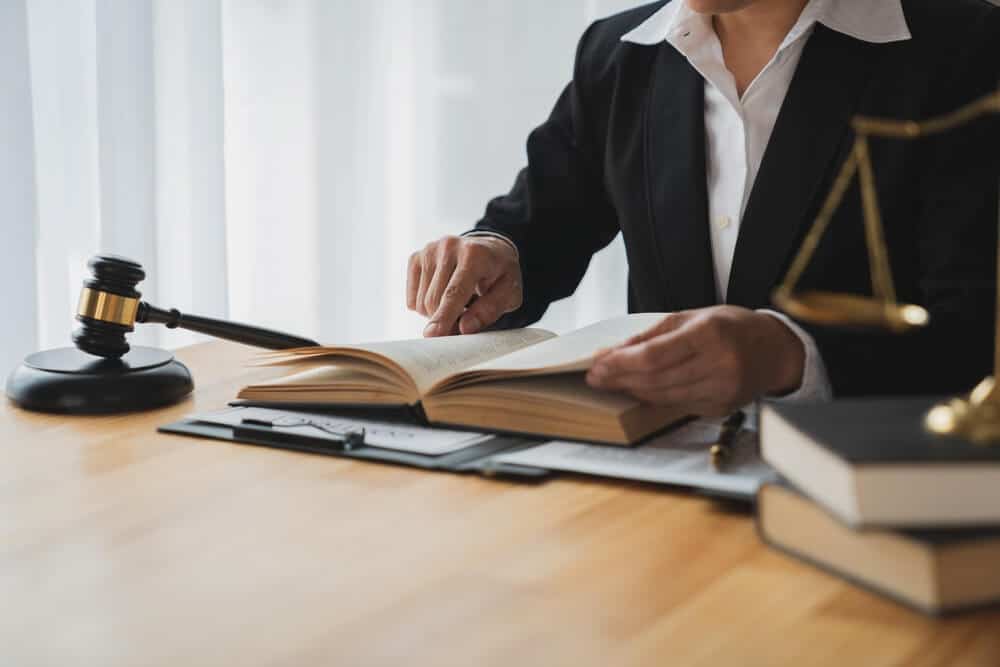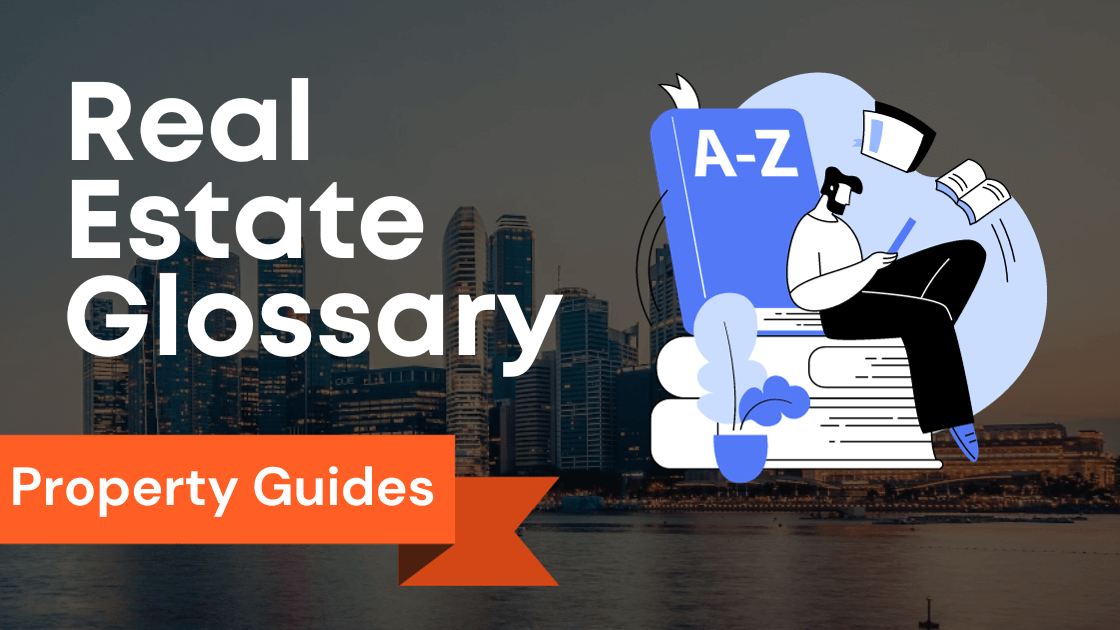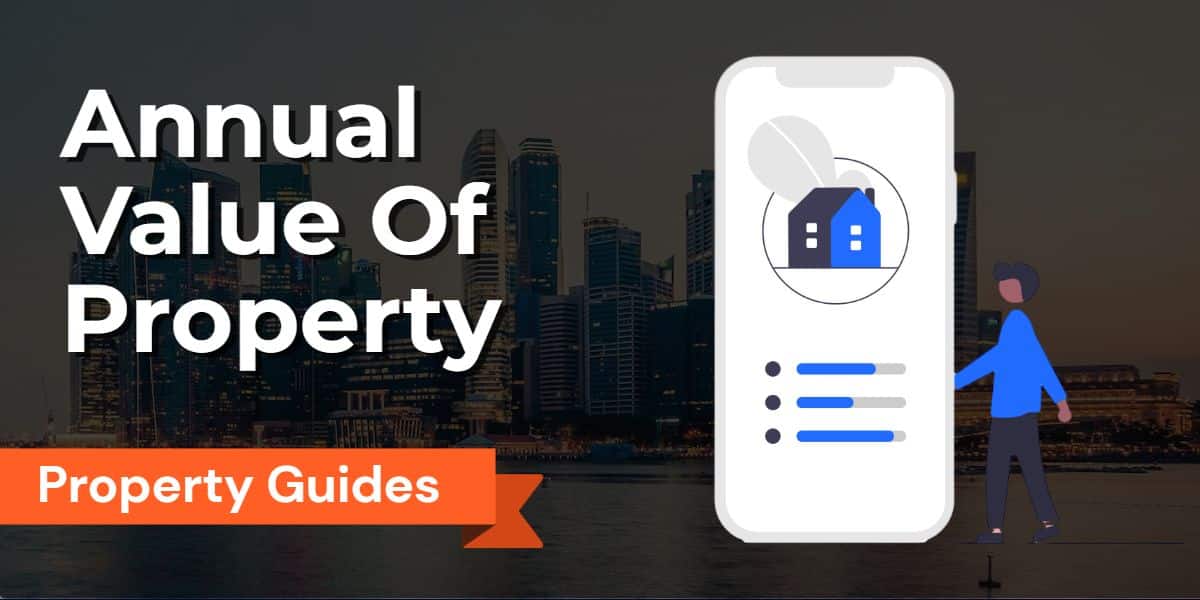
Discover the fascinating world of property law in Singapore!
Understanding property law is essential to protect your rights and interests, whether you’re buying, selling, leasing, or financing property.
In this blog, we’ll explore the ins and outs of property law, including how it differs in Singapore compared to other countries.
From common legal issues property owners face to the crucial role of property lawyers, we’ll provide valuable insights and advice to ensure your property transactions go smoothly.
Join us as we unravel the complexities of property law and help you make informed decisions in the dynamic Singapore property market.
Key Takeaways
| Key Takeaway | Explanation |
|---|---|
| Property law governs ownership and use of property in Singapore | Property law in Singapore regulates ownership, buying, selling, leasing, and financing property. It protects the rights and interests of parties involved in property transactions. |
| Singapore’s property law system is efficient and streamlined | Singapore’s property law is governed by the Land Titles Act, which provides a unified system of registered land ownership. This makes the property law system in Singapore more efficient compared to other countries. |
| Common legal issues in property ownership in Singapore | Property owners in Singapore may face legal issues such as ownership disputes, boundary disputes, landlord-tenant issues, zoning regulations, and financing matters like mortgages and refinancing. |
| Property lawyers provide legal advice and guidance in property-related matters | Property lawyers offer services such as drafting legal documents, negotiating property transactions, representing clients in court, and advising on property disputes, ownership issues, and relevant laws and regulations. |
| Benefits of hiring a property lawyer | Hiring a property lawyer ensures legal soundness, protection of rights and interests, avoidance of legal disputes, compliance with legal requirements, and access to legal expertise throughout the transaction process. |
| Factors to consider when choosing a property lawyer | Important factors to consider when choosing a property lawyer include their experience, expertise, accessibility, track record, fees, and reputation within the legal community. |
| Conveyancing is the legal process of transferring property ownership | Conveyancing involves tasks such as obtaining legal advice, negotiating terms, conducting title searches, preparing legal documents, and registering the transaction with government bodies. |
| Legal services provided by property lawyers | Property lawyers offer services such as legal advice on property transactions, court representation for property disputes, drafting and reviewing legal documents, advising on landlord-tenant issues, and guidance on relevant laws and regulations. |
| Benefits of LLPs for property law firms | Limited Liability Partnerships (LLPs) offer flexibility in management, protection against partner liabilities, and the ability to attract top talent while limiting liability in property law firms. |
| Qualifications and expertise of property lawyers | Property lawyers should have a law degree, experience in property law, good communication skills, a successful track record, and membership in recognized law practices or corporations. |
| Challenges and solutions in conveyancing for Singapore property | Conveyancing challenges for Singapore property include HDB regulations and varying legal documents. Property lawyers ensure a smooth process through advice, document preparation, searches, and communication with relevant authorities. |
| Legal advice and assistance for HDB transactions | Property lawyers play a crucial role in providing legal advice and assistance for HDB transactions, including document preparation, property searches, and dealing with legal issues that may arise. |
| The role of property lawyers in refinancing transactions | Property lawyers assist in refinancing transactions by providing legal advice, preparing and reviewing legal documents, and ensuring a smooth process for clients. |
| Practice areas in property law firms | Property law firms offer services in areas such as residential and commercial conveyancing, lease agreements, property development, landlord-tenant disputes, and family law matters related to property ownership. |
| Considerations in Singapore property investment | Legal considerations when investing in Singapore property include understanding property agreements, permits and licenses for development projects, zoning and land use regulations, and ensuring the validity of transactions. |
| Common legal issues in residential property transactions | Common legal issues in residential property transactions include liens or encumbrances, property ownership transfer, lease agreements, zoning restrictions, and disputes or litigation related to the property. |
| Risks of buying or selling residential property without a lawyer | Buying or selling residential property without a lawyer can lead to invalid or unfavorable transactions and potential legal disputes or litigation. |
Understanding Property Law in Singapore
What is Property Law?
Property law is the area of law that governs the various aspects and rights related to the ownership and use of property.
This could include, for example, legal matters related to buying, selling, leasing, and financing property.
Property law is essential to ensure that all parties involved in a property transaction are protected and their rights and interests are safeguarded.
How does Property Law in Singapore differ from other countries?
Property law in Singapore is generally governed by the Land Titles Act, which provides for a system of registered land ownership.
This has made Singapore’s property law system more efficient and streamlined than other countries, where various property-related laws and procedures may depend on the state or region.
What are some common legal issues faced by property owners in Singapore?
Some common legal issues that property owners may face in Singapore include disputes related to property ownership, boundary disputes, landlord-tenant matters, and zoning regulations.
Property owners may also face legal issues related to financing, such as mortgage and refinance points.
The Role and Importance of Property Lawyers

What is the role of a Property Lawyer?
A property lawyer provides legal advice and guidance on various property-related matters.
This can include drafting and reviewing legal documents, negotiating property transactions, representing clients in court, advising on property disputes and ownership issues, and providing guidance on relevant laws and regulations.
Why is it important to hire a Property Lawyer?
There are many reasons why hiring a property lawyer in Singapore is essential.
A property lawyer can provide valuable advice and guidance to ensure your property transaction is legally sound and your rights and interests are protected.
Having a property lawyer can also help you avoid costly legal disputes and meet all legal requirements.
What are the benefits of having a Property Lawyer?
Some of the key benefits of having a property lawyer include access to legal expertise and guidance throughout the transaction process, assistance with negotiating terms of a sale or lease, protection of your legal rights, and help with resolving disputes related to property ownership or other legal matters related to your property.
Choosing the Right Property Lawyer in Singapore
What are the factors to consider when choosing a Property Lawyer?
When choosing a property lawyer in Singapore, it is essential to consider several factors.
Some key factors to consider include the lawyer’s experience and expertise in property law, their accessibility and responsiveness, their track record of successful cases, their fees, and their reputation within the legal community.
How can you find the best Property Lawyer in Singapore?
There are several ways to find the best property lawyer in Singapore.
You can start by asking for recommendations from friends, family, or colleagues who have previously worked with a property lawyer.
You can also search online for property lawyers in Singapore and read reviews from previous clients.
Another option is to contact the Law Society of Singapore, which can provide a list of qualified lawyers specializing in property law.
What are the questions to ask when selecting a Property Lawyer?
When selecting a property lawyer in Singapore, some critical questions include their experience and expertise in property law, their approach to handling property transactions, their availability and responsiveness, their fees and charges, and their communication style and approach to client relationships.
Navigating the Conveyancing Process for Property Transactions

What is Conveyancing?
Conveyancing is the legal process of transferring property ownership from one party to another.
This can include buying, selling, or leasing property.
Conveyancing is an essential legal process to ensure that all paperwork is legally binding and all parties involved are protected.
What is the Conveyancing Process in Singapore?
The conveyancing process in Singapore typically involves several steps.
These may include obtaining legal advice on the transaction, negotiating and agreeing on terms, conducting a title search to ensure the property is legally sound, preparing and reviewing legal documents, and finalizing the transaction through registration with relevant government bodies.
What are the legal documents involved in Conveyancing?
Several legal documents may be involved in the conveyancing process for property transactions in Singapore.
These may include the sale and purchase agreement, the title deed, mortgage agreements, and other relevant legal documents required to transfer property ownership.
Comprehensive Legal Services Provided by Property Lawyers
What are the legal services provided by Property Lawyers?
Property lawyers provide various legal services related to property transactions, conveyancing, and other matters.
Some critical legal services that property lawyers can provide include legal advice and guidance on property transactions, representing clients in court for property disputes, drafting and reviewing legal documents, advising on landlord-tenant issues, and providing guidance on relevant laws and regulations.
How can a Property Lawyer provide legal advice?
A property lawyer can provide legal advice by reviewing relevant legal documents, researching applicable laws and regulations, and providing guidance on legal issues related to property transactions.
They can also represent clients in court and negotiate to ensure their rights and interests are protected throughout the transaction process.
What are the benefits of hiring a Property Lawyer for property transactions?
There are many benefits to hiring a property lawyer for property transactions in Singapore.
A property lawyer can provide valuable guidance and advice throughout the transaction process, ensuring that all legal requirements are met, and your rights and interests are protected.
They can also help you avoid costly legal disputes and ensure you are fully aware of the legal implications of any property transaction.
The Significance of LLPs in Property Law Firms

What is an LLP?
A Limited Liability Partnership (LLP) is a partnership in which all partners have limited liability.
LLPs are commonly used in law firms where the disadvantages of partners are limited to the amount of money they have invested in the business.
The partners in an LLP are not personally liable for the debts and obligations of the company.
Benefits of an LLP for property law firms
LLPs have many benefits for property law firms in Singapore:
- LLPs provide greater flexibility in the management and organization of a law firm.
- They protect the partners against each other’s negligence or wrongful acts, making it an attractive model for law firms with multiple partners.
- LLPs allow law firms to attract top talent by enabling them to become partners while limiting their liability.
How to choose a property law firm with an LLP structure
When choosing a property law firm in Singapore, it is essential to consider its structure and experience in dealing with property matters.
You should look for a law firm specializing in real estate law and have experience dealing with the specific type of property you are interested in.
It is also essential to consider the firm’s reputation in the legal community, its track record of success, and the legal fees it charges.
Expertise in Conveyancing and Property Matters
What is conveyancing?
Conveyancing is the legal process of transferring property ownership from one party to another.
It involves a series of legal and administrative tasks that must be completed before a property can change ownership.
These tasks include preparing and reviewing legal documents, conducting property searches, liaising with the relevant authorities, and arranging to transfer funds.
Why is expertise in property matters important for a property lawyer?
Property law is a complex area of law that involves many legal considerations and regulations.
An experienced property lawyer must thoroughly understand the legal framework surrounding property transactions, including Singapore law, conveyancing law, and HDB regulations.
The lawyer must also be able to provide sound advice to clients on matters such as transfer of ownership, grant of probate, and commercial property transactions.
How to assess the expertise of a property lawyer?
When choosing a property lawyer in Singapore, it is essential to consider their qualifications and experience.
It would help if you looked for a lawyer who is experienced in dealing with property matters, has a good track record, and has positive client reviews.
Ideally, the lawyer should have a degree from a reputable institution, such as the National University of Singapore, and be a member of a recognized law practice or law corporation.
Ensuring a Smooth Conveyancing Process for Singapore Property

Common challenges in conveyancing for Singapore property
Conveyancing for Singapore property can be particularly challenging due to the complex legal and administrative requirements.
For example, HDB transactions involve additional regulations and conditions that must be met, and each property transaction may require different legal documents.
How a property lawyer can ensure a smooth conveyancing process
A property lawyer can help clients navigate the conveyancing process, providing advice and support at every step.
They can help clients prepare and review legal documents, conduct property searches, and liaise with the relevant authorities.
An excellent conveyancing lawyer will keep their clients informed throughout the process, ensuring they understand the legal requirements and that the transaction proceeds smoothly.
What to look for in a conveyancing lawyer in Singapore
When choosing a conveyancing lawyer in Singapore, experience and expertise are key factors.
Look for a lawyer who specializes in conveyancing and has a good track record of success.
It is also essential to consider the lawyer’s communication skills and responsiveness, as a good conveyancing lawyer will keep their clients informed at every stage of the process.
Legal Advice and Assistance for HDB Transactions
What is HDB?
The Housing and Development Board (HDB) is a statutory board in Singapore responsible for public housing.
HDB flats are one of the most common properties in Singapore, and many property transactions involve HDB flats.
The role of a property lawyer in HDB transactions
A property lawyer can provide valuable legal advice and assistance in HDB transactions, helping clients navigate complex regulations and requirements.
They can assist with preparing and reviewing legal documents, conducting property searches, liaising with the relevant authorities, and dealing with any legal issues that may arise during the transaction.
How to choose a property lawyer for HDB transactions
When choosing a property lawyer for HDB transactions, it is essential to consider their experience and expertise in dealing with HDB regulations and requirements.
Look for a lawyer with a good track record in dealing with HDB matters and familiar with the legal framework surrounding HDB transactions.
Considering the lawyer’s fees, communication skills and responsiveness is also essential.
The Role of Property Lawyers in Refinancing Transactions

What is refinancing?
Refinancing replaces an existing mortgage loan with a new one, usually with better terms or interest rates.
Refinancing can save homeowners money on their monthly mortgage payments and help them build home equity more quickly.
The role of a property lawyer in refinancing transactions
A property lawyer can provide valuable legal advice and assistance in refinancing transactions, helping clients navigate complex regulations and requirements.
They can assist with preparing and reviewing legal documents, liaise with the relevant authorities, and ensure that the transaction proceeds smoothly.
What to consider when choosing a property lawyer for refinancing transactions
When choosing a property lawyer for refinancing transactions, it is essential to consider their experience and expertise.
Look for a lawyer with a good track record in dealing with refinancing matters and familiar with the legal framework surrounding refinancing transactions.
Considering the lawyer’s fees, communication skills and responsiveness is also essential.
Exploring Practice Areas in Property Law Firms
What are the different practice areas within property law firms?
Property law firms often offer various property and real estate transaction services.
Some of the primary practice areas within these firms might include:
- Residential and commercial conveyancing
- Lease agreements and renewals
- Property development and construction projects
- Landlord and tenant disputes
- Family law matters related to property ownership.
What services do property law firms typically offer?
At a property law firm, you can expect to find a range of conveyancing and property-related services, including:
- Provide legal advice and representation regarding real estate transactions.
- Assist with the transfer of property ownership.
- Manage the legal aspects of property purchases and sales.
- Help clients negotiate leases and other property agreements.
- Provide support and legal advice for property development projects.
- Assist with property-related disputes and litigation.
What qualifications should I look for in a property lawyer?
When searching for a property lawyer, looking for someone with the right qualifications and experience is essential.
An effective property lawyer should have the following:
- A law degree from a reputable university, preferably in Singapore
- Experience practicing property law in Singapore.
- Good communication and negotiation skills
- A solid track record of successful property transactions and cases
Singapore Property Market: Trends and Legal Considerations

What are the current trends in Singapore’s property market?
The Singapore property market has seen significant growth in recent years, with rising prices and increasing demand for residential and commercial properties.
Some of the key trends to watch for in the coming months might include:
- Continued demand for landed homes and luxury properties.
- An increase in the number of property transactions as the economy recovers
- A greater focus on sustainable and affordable housing
- Advances in property technology and digital solutions
What legal considerations do I need to keep in mind when investing in Singapore property?
Investing in Singapore property can be complex, with many legal considerations to remember.
Some of the critical legal issues to consider might include:
- Understanding the terms of any property agreements before signing on the dotted line
- Maintaining the necessary permits and licenses for property development or construction projects
- Complying with zoning and land use regulations in your area
- Ensuring that your property transactions are legally valid and binding
How can a property lawyer help me navigate the legal requirements of the Singapore property market?
A property lawyer can offer invaluable guidance and advice when it comes to navigating the legal requirements of the Singapore property market.
A skilled property lawyer can help you with the following:
- Understand the legal and regulatory landscape of the Singapore property market.
- Ensure that your property transactions are legally sound and valid.
- Provide guidance and support during property disputes and litigation.
- Help you navigate complex legal issues related to property development or construction projects.
Common Legal Issues in Residential Property Transactions
What are some of the common legal issues that arise in residential property transactions?
Buying or selling a residential property can be a complex process, with many legal issues to consider along the way.
Some of the most common legal issues that arise in residential property transactions might include:
- Ensuring that the property is free of any liens or encumbrances
- Managing the transfer of property ownership and registration
- Negotiating and reviewing lease agreements or rental agreements
- Advising on the legal implications of any zoning or land use restrictions
- Providing guidance and support during disputes or litigation related to the property
What are the risks involved in buying or selling a residential property without a lawyer?
Buying or selling a residential property without the guidance of a qualified property lawyer can be risky.
Some of the potential risks involved might include:
- Undertaking a transaction that is not legally valid or binding
- You are unknowingly agreeing to terms that are not in your best interest.
- Exposing yourself to potential legal disputes or litigation down the line
What are the steps involved in a typical residential property transaction in Singapore?
In Singapore, a typical residential property transaction might involve the following steps:
- Entering into a purchase and sale agreement
- Negotiating the terms of the deal, including price and possession date
- Completing an inspection of the property and disclosing any issues
- Executing the transfer of ownership and registering the property with the relevant authorities
- Completing any necessary financing or mortgage agreements
Commercial Property Matters: Legal Challenges and Solutions

What are some of the legal challenges that businesses face when dealing with commercial property transactions?
Commercial property transactions can be complex, with many potential legal challenges.
Some of the key legal challenges that businesses may face in this area might include:
- Navigating complex lease agreements or rental agreements
- Ensuring that the property is appropriately zoned for business use
- Managing the legal and regulatory requirements of a property development project
- Resolving disputes related to the property or lease agreements
What are the different types of commercial property transactions, and how can a property lawyer help me navigate them?
Some of the different types of commercial property transactions might include:
- Sales and purchases of commercial real estate
- Commercial lease agreements and renewals
- Property development and construction projects
- Acquisitions and mergers involving real estate assets
A property lawyer can help you navigate these different types of transactions by:
- Providing guidance and advice on complex legal issues related to the transaction
- Ensuring that all documentation and agreements are legally sound and valid
- Helping you negotiate favorable terms and conditions for the transaction
- Providing support and legal representation during any disputes or litigation related to the transaction
How can I ensure that I am getting a fair deal in a commercial property transaction?
To ensure that you get a fair deal in a commercial property transaction, you must work with an experienced property lawyer who can provide you with guidance and support throughout the process.
You should also:
- Ensure that you fully understand the terms and conditions of any agreements or contracts before signing
- Be prepared to negotiate the terms of the transaction to ensure that they are fair and reasonable
- Work with a real estate agent or broker who has extensive experience in the commercial property market in Singapore
- Conduct thorough due diligence on the property and any potential legal issues that may arise
Professionalism and Experience: Key Traits of an Effective Property Lawyer
Choosing the Right Property Lawyer
Choosing the right property lawyer is essential to the success of your property transaction.
When selecting a lawyer, it is necessary to find someone experienced in law that pertains to your marketing.
Look for a law firm specializing in conveyancing law and with a proven track record in providing conveyancing services.
The Importance of Experience in Property Law
Experience is one of the most essential traits of an effective property lawyer.
A lawyer with 20 years of experience in conveyancing and property law will likely provide the highest service and professionalism.
Experienced lawyers are also better equipped to handle complex legal issues that may arise during the conveyancing process.
Keeping Up With Changes in Property Law
Property law is constantly changing, so property lawyers must stay updated with new rules and regulations.
Look for a conveyancing and property lawyer that commits to keeping up with changes in the law to ensure that you receive the best legal advice and assistance.
Conclusion
In conclusion, understanding property law in Singapore is crucial for property owners and potential buyers.
Property law governs the various aspects and rights of property ownership and use, including buying, selling, leasing, and financing property.
Compared to other countries, Singapore’s property law system is more efficient and streamlined due to the Land Titles Act.
Common legal issues property owners face in Singapore include property ownership disputes, boundary disputes, landlord-tenant matters, and zoning regulations.
Hiring a property lawyer is essential to ensure that your property transaction is legally sound and your rights are protected.
They provide valuable advice, guidance, and expertise throughout the transaction process, help with negotiations, and resolve disputes.
Frequently Asked Questions
What is a property lawyer?
A property lawyer is a legal professional who focuses on real estate transactions and property ownership rights.
What is conveyancing?
Conveyancing refers to the legal process of transferring ownership of real property from one person or entity to another.
Why do I need a property lawyer?
A property lawyer can provide valuable legal advice and guidance throughout your real estate transaction, ensuring that your interests are protected, and the transaction is completed smoothly.
What kind of services can a conveyancing and property lawyer offer?
A conveyancing and property lawyer can offer various services, including drafting and reviewing contracts, performing due diligence, handling negotiations, and overseeing the transfer of ownership.
What is the role of a property lawyer in a real estate transaction?
A property lawyer can help you navigate complex legal issues, negotiate favorable terms, and ensure all necessary documentation and procedures are followed to complete the transaction.
What experience should I look for in a property lawyer?
Look for a property lawyer with experience in real estate transactions and a proven track record of providing high-quality legal services to clients.
What types of properties can a property lawyer assist with?
A property lawyer can assist with residential, commercial, and industrial properties.
What are some of the government regulations involved in real estate transactions?
Real estate transactions are subject to several government regulations, including stamp duty, tenancy, and building regulations.
How can a property lawyer help me with negotiating the terms of a contract?
A property lawyer can provide valuable advice and guidance throughout the negotiation process, helping you to understand your bargaining power and achieve the best possible outcome.




















